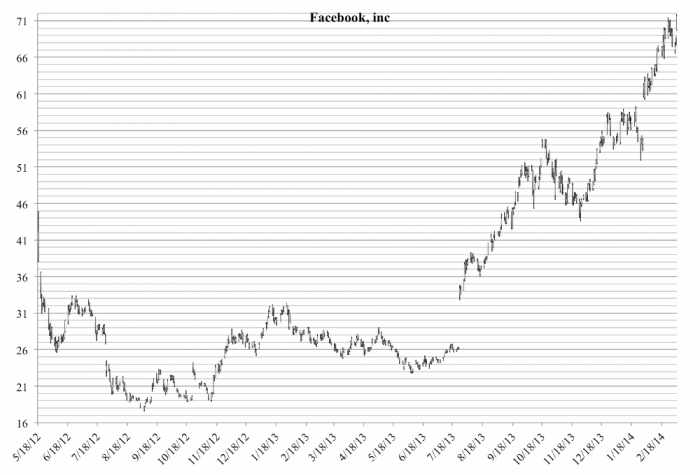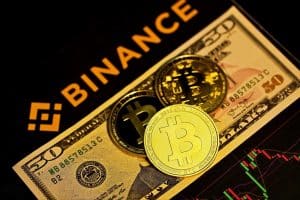Don’t stick your head in the sand, start investing

PHUKET: Lately, a lot of the phone calls I’ve been getting are from nervous retirees. They’re nervous for two reasons: One, many of my clients have seen their accounts go up by quite a bit. After all, the US stock market is showing all-time highs. If clients just purchased the ETF of the S&P 500, they’re up 17% in the past year.
For those that might have been more aggressive and purchased a stock like Facebook, they’ve made over 100% on their money.
A year ago, when Facebook was trading at US$25, it was a no-brainer investment for me. I use it every day and many expats that I know use it stay in touch with their families. The average Facebook user spends about 40 minutes a day on it. The company now accounts for $1 of every $5 spent on mobile advertising.
The reason shares had sold off after the IPO was that investors were concerned that more users were logging into Facebook on mobile devices and that Facebook would not be able to monetize mobile. Well, a year ago, Facebook CEO Mark Zuckerberg came out and said that he will win the war for mobile ad dollars. Boy, did he deliver.
The problem now is that the Chairman of the Federal Reserve, Janet Yellen, issued a cautionary statement on social media and biotech stocks in the middle of July. The Fed said that share prices of certain sectors “do appear substantially stretched.” When the Fed speaks, I listen.

This leads me to the second reason many of my callers are nervous. Many are seeing these headlines and have not invested in the stock market yet. They’re fearful that the market is going to crash and they don’t want to be investing at a market top. Remember, it’s buy low and sell high and not buy high and sell low.
So the question facing many investors today is, “what do I do next?” If you’re already invested, do you sell and get out of the market? And if you haven’t invested yet, how do I start after the market has gone up so much?
Well, there’s no clear answer to these questions. A lot depends on your individual situation. For instance, some of my clients are offshore oil workers. They generate good income every month and they can invest through the market’s ups and downs. Over the long-run, blue chip stocks and equities have proven to be the best investment for retirement.
For those that haven’t invested yet and don’t have the income of an offshore oil worker, they have to get defensive. What do I mean by this? Well, you want to be in stocks that will do well no matter what.
Two of my favorite defensive stocks are McDonald’s and Coca-Cola. People all over the world are going to continue eating McDonald’s and drinking Coca-Cola. Just go to our local McDonald’s here in Phuket and we can see all the Chinese and Russian tourists choosing to eat a Big Mac and fries over our delicious Thai food.
And what’s the beverage of choice at McDonald’s? It’s a Coke.Why I like these two stocks is that the Great Depression of our lifetime was in 2008 and 2009. This was when the global economy almost collapsed, but shares of McDonald’s and Coca-Cola held up better than other stocks. Throughout this period, both McDonald’s and Coca-Cola paid their dividends and investors got a 3% dividend yield.
McDonald’s and Coca-Cola’s businesses are so strong that it’s like putting your money in the bank and collecting 3%. They’re not going out of business tomorrow.
Buying McDonald’s and Coca-Cola is not for everyone. Some may not like their businesses and think that the trend is towards healthier foods and beverages.
The point is that McDonald’s and Coca-Cola are just two options when it comes to getting defensive with your investments. There are a number of ETFs, MLPs, REITS, utilities, and other consumer companies that do just as well in a down market. They also pay the nice dividends that we retirees need to live on here in Thailand. (Stay tuned for my next article on the Vanguard Real Estate Investment Trust ETF which pays a nice dividend.)
“The first step towards financial freedom is realizing that you need a plan and then making the call and devising that plan. So give me a call and we can discuss what options are right for you. We can tailor a plan that fits your needs and that’s what’s important.
Don Freeman is president of Freeman Capital Management, a Registered Investment Adviser with the US Securities Exchange Commission (SEC), based in Phuket, Thailand. He has over 15 years experience and provides personal financial planning and wealth management to expatriates. Specializing in UK and US pension transfers. Call 089-970 5795 or email: freemancapital@gmail.com.
— Don Freeman
Latest Thailand News
Follow The Thaiger on Google News:


























